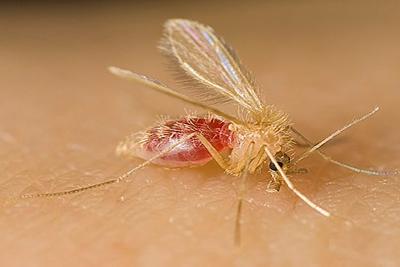New studies to combat deadly tropical disease

A University of Southampton researcher is to develop a new vaccine and treatments for a neglected tropical disease that effects millions of people.
Visceral Leishmaniasis (VL) causes irregular bouts of fever, substantial weight loss, swelling of the spleen and liver, and anaemia, and if left untreated the fatality rate in developing countries can be as high as 100 per cent within two years. Transmitted by sand-flies, the highest incident rates are reported in Brazil, India and from other low-middle income countries on the Indian and African continents.
Despite up to one million new cases and 50,000 deaths a year, there are no vaccines to protect against the disease.
Professor Myron Christodoulides, at the University of Southampton, and his collaborator Professor Coelho at the Federal University of Minas Gerais (UFMG), have been awarded a one-year pump-priming grant from VALIDATE-MRC for £50,000, to develop a novel experimental VL vaccine.
Professor Christodoulides said: “VL is a devastating disease that has been neglected and left to infect millions of people. In Brazil specifically, the situation is made worse because dogs, of which there are between 20 and 30 million, can carry the sand-flies that transmit the disease. Therefore VL is of veterinary importance as well.”
The investigators will develop a Leishmania recombinant chimera protein vaccine, based on selecting T-cell epitopes from candidate parasite proteins that the teams have discovered. They will test the efficacy of the vaccine in preventing infection with live parasites, as a pre-requisite for eventual Phase I trials in humans and potentially dogs living in areas with endemic disease.
However, Professor Christodoulides’ work does not stop there. Another research grant (£20,000) funded by a collaboration between the University of Southampton and FAPESP, the São Paulo State Research Foundation, will bring together experts with a shared goal in treating VL and the sexually transmitted disease (STD) gonorrhoea.
There are around 78 million cases of gonorrhoea worldwide a year and worryingly, both gonococci and VL are becoming increasingly resistant to currently used antimicrobials.
Professor Christodoulides and his colleague Professor Tempone at the Instituto Adolfo Lutz and Professor Lago at the Universidade Federal do ABC, Sao Paolo, will explore the use of natural products to treat antimicrobial resistant gonorrhoea and VL.
Professor Christodoulides added: “Natural products derived plants, terrestrial and marine microbes, fungi and invertebrates are an enormous, untapped reservoir of potential anti-microbial compounds that are increasingly being identified, and synthetic chemistry can produce. The Brazilian biome is a rich source of natural products and the aim of this project is to identify, synthesise and test new small bioactive molecules against both pathogens in the laboratory. This project offers a unique opportunity to connect infectious diseases and natural product science.”